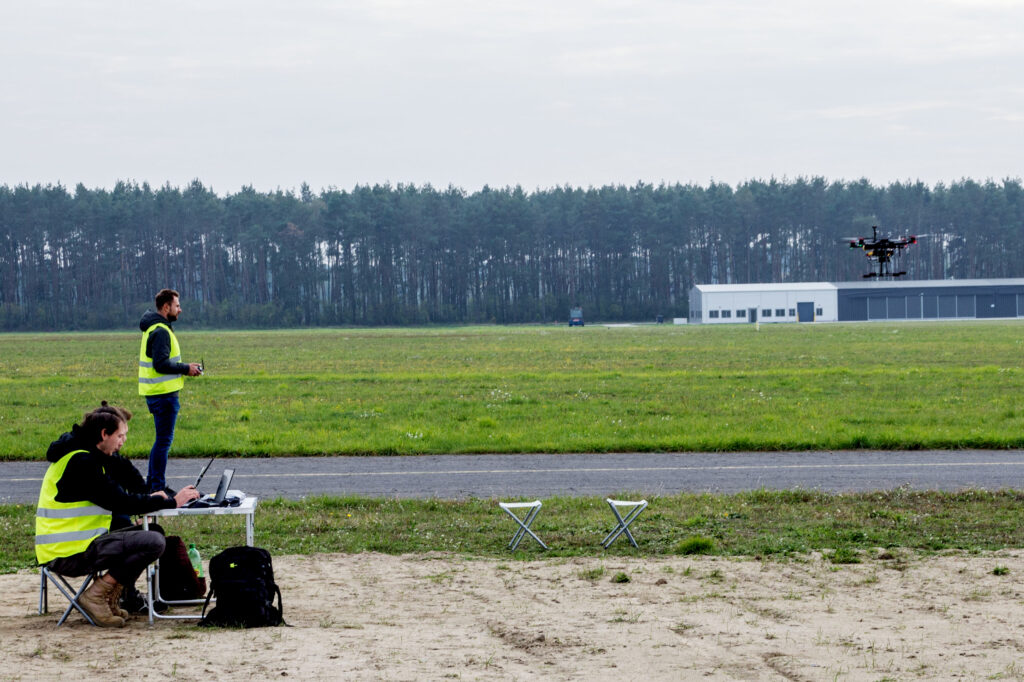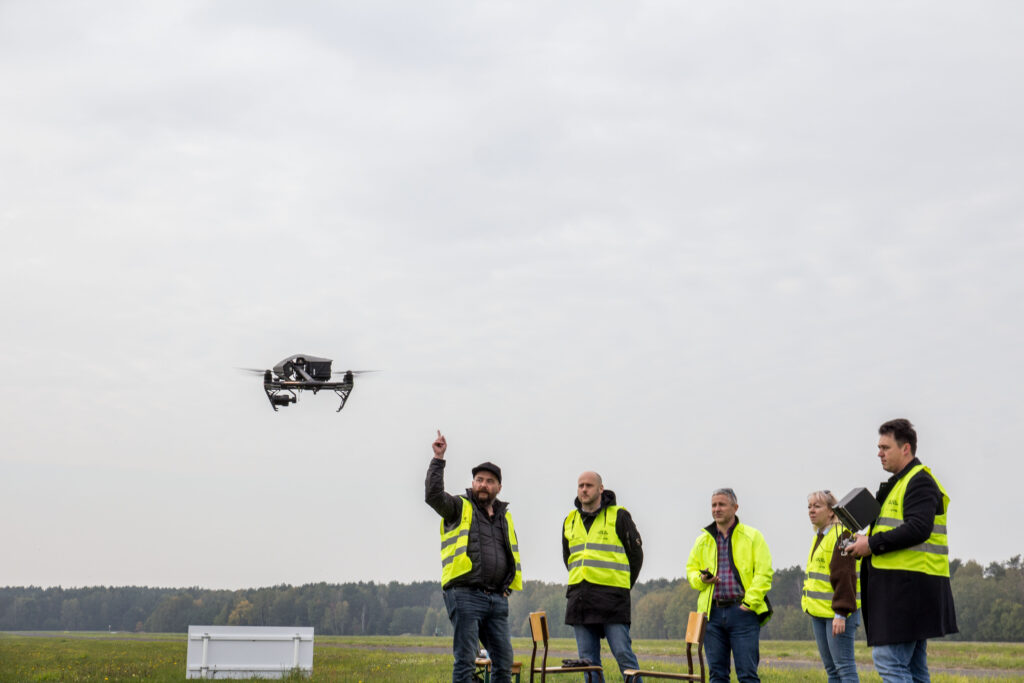The GOF 2.0 project, as a continuation of the SESAR JU Gulf of Finland U-space initiative, successfully demonstrated the safe integration of unmanned aerial vehicles in airspace during the summer of 2019. It took a step further by testing drone flights in urban airspace over the next two years. This project began in January 2021 and was executed by a consortium of 13 members under the SESAR JU initiative “GOF 2.0 Integrated Urban Airspace Validation,” including PSNC. The main focus of the project was the safe and sustainable integration of unmanned aerial operations in urban airspace.
With the continued development of unmanned aerial vehicles and air taxis, the rapidly evolving drone market has created a need for the evolution of technologies and procedures for their safe coexistence with manned aircraft.

The advanced test flights underscored the importance of creating a scalable U-space architecture and ensured that the technical environment is based on international standards using System Wide Information Management (SWIM) principles. The GOF U-space project also highlighted that ensuring interoperability and market openness is equally important, with oversight conducted by regulators to facilitate the easy exchange of safety-related information.
SESAR JU GOF 2.0 aims to safely, reliably, and sustainably demonstrate the operational viability of integrated operations of unmanned aircraft systems (UAS), electrically powered vertical take-off and landing vehicles (eVTOLs), and manned flights in a unified, dense urban airspace using existing ATM and U-space services and systems.
GOF 2.0 is a crucial factor enabling the further development of the drone market and will provide the technical components required for the business-justifiable use of autonomous and semi-autonomous drones beyond visual line of sight in shared airspace. Additionally, the project has contributed to the acceptance of drones as legitimate airspace users by air navigation service providers (ANSPs), other airspace users, regulatory authorities, and ultimately by the entire aviation community.

In the project, PSNC was responsible for launching and providing the Common Information Service (CIS) in a cloud environment and for demonstrations in situations involving airspace classification changes. Demonstrations were conducted, among other places, at the PSNC Aerospace Lab – the laboratory space at Kąkolewo airport (EPPG), which serves as a new area for the Center's research and development activities, focusing primarily on cyber-physical issues.
The GOF 2.0 consortium, consisting of 13 academic and commercial partners from the aviation industry, utilized its expertise and technologies to enable safe aviation operations in all classes of airspace, ensuring fair and efficient access to airspace for all users.
The project was funded by SESAR Joint Undertaking under the European Union’s Horizon 2020 program for research and innovation based on grant agreement No. 101017689.